
SDG 2 – Indicator 2.3.1 – Student food insecurity and hunger
A Holistic Programme on Student Food Security
Proper nutrition is critical to the physical and mental well-being of students. Malnutrition or hunger can affect cognitive function, concentration, and overall health, ultimately impacting academic performance. By ensuring that students have access to nutritious meals, universities can support the physical and mental health of their students.
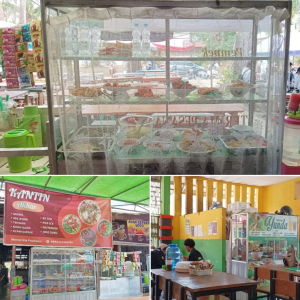
Sriwijaya University itself has implemented a holistic student food security program consisting of the following programs:
- Campus Food Pantries
Some faculties at Sriwijaya University have established campus food pantries to provide students with immediate access to free and affordable food. These pantries provide non-perishable items, fresh produce and basic groceries, allowing students to focus on their studies instead of worrying about their next meal.
- Meal Swipe Donation Programs
The Student Community has a Meal Swipe Donation Initiatives program where students with extra meal credits can donate them to students in need. This program allows students to eat in the dining hall without additional financial burden and fosters a supportive campus community.
- Rice for Students
The Faculty of Agriculture opened a rice kiosk for the campus community, which is open to all, including students, at lower selling prices with good quality rice, the result of the last growing season’s rice harvest. The main manager of this rice kiosk is a student with the help of experienced faculty. This activity was carried out to ensure the availability of basic food for students and to eliminate the possibility of hunger among Sriwijaya University students.
- Partnerships with local food banks (Desa Binaan UNSRI)
Sriwijaya University is increasingly partnering with local food banks and non-profit organizations to ensure a consistent supply of food for students in need. These partnerships strengthen support networks and increase resources, creating a more resilient framework for student food security. Sriwijaya University has a long history of partnering with villages, where through this program, the academic community shares knowledge in various areas, including food availability and security, with local farmers. And the local farmer becomes a supplier of staple foods for UNSRI’s needs.
Links:
SDG 2 – Indicator 2.3.2 – Students hunger interventions
Free food and milk for students living in dormitories
Sriwijaya University is one of 17 universities in Indonesia that have dormitories or student residences. Dormitories can be an option for students who live outside the Indralaya campus. This dormitory is mainly used by students from the Bidik Misi program and students from simple families because the dormitory provides good facilities at an affordable price and is managed by Sriwijaya University, so the security is good.
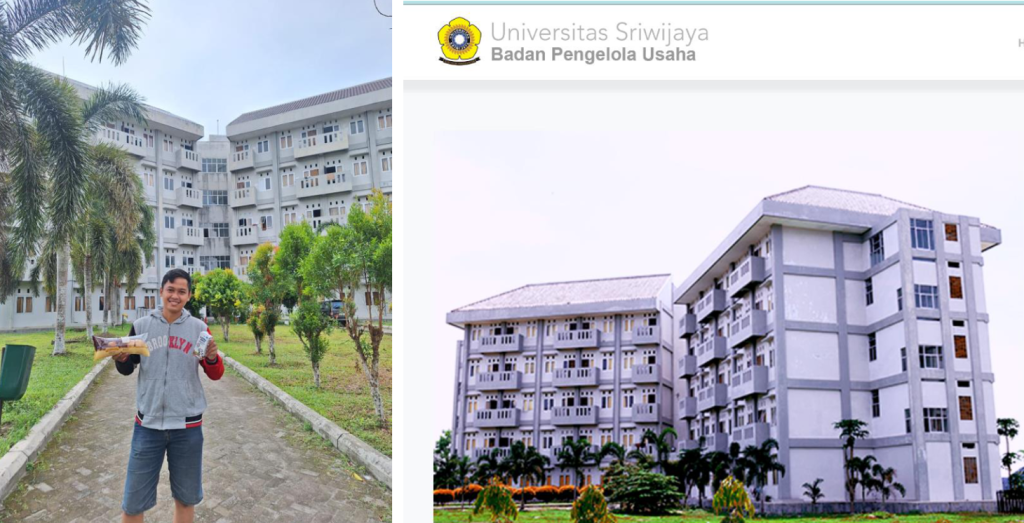
In addition to providing good dormitory facilities, many programs are provided either from the campus or through the student community to help intervene in the constraints of students living in this dormitory in terms of food to overcome hunger. The principle is not to let the students who live in the dormitories experience hunger and lack of food. Especially during the COVID-19 pandemic. And also when many lecture activities are conducted online.
One of the programs is Free Food and Milk for Students in Dormitories to alleviate financial burden and promote well-being. This program aligns with the United Nations Sustainable Development Goal 2 (SDG 2): Zero Hunger, by ensuring that all students have access to nutritious food, regardless of their economic situation.
The Free Food and Milk Program provides students living in residence halls with free basic food items, including staples such as milk, fresh fruits, vegetables, grains, and protein. By providing access to nutritious food in their own homes, this program supports students who might otherwise skip meals or rely on low-cost, low-nutrition foods.
Links:
- https://bpu.unsri.ac.id/index.php/asrama
- https://unsri.ac.id/detail-information/541/satgas-covid-19-dan-keluarga-besar-unsri-membagikan-1000-paket-sembako
SDG 2 – Indicator 2.3.3 – Sustainable food choices on campus
Tempeh: A fermented soybean-based vegetarian food for sustainable campus living
Populations that specifically and consistently follow a vegetarian lifestyle (avoiding the consumption of all types of foods of animal or fish origin) or a vegan lifestyle (not consuming fresh meat and fish, eggs and milk, and also not consuming all types of derivative products) are very rare or may not exist on the Universitas Sriwijaya (UNSRI) campus. On the contrary, the majority of students, staff and faculty do not consume pork due to religious prohibitions, but do consume other types of meat.
Due to the lack of vegetarian and vegan communities on campus, the UNSRI campus does not have any vegetarian or vegan-only food courts or stands. However, there are several types of foods that are very popular in Indonesia that do not contain meat, fish, or derived products. These foods are gado-gado, pecel, karedok, and several other variations. These menus can be used as an alternative food for guests with vegetarian lifestyles or for those visiting the UNSRI campus.
In keeping with modern health, environmental, and ethical considerations, campuses are increasingly promoting vegetarian and plant-based food options in their dining halls and living spaces. Among these offerings, tempeh has emerged as a popular and versatile food ideal for students seeking nutritious, sustainable, and protein-rich options. Tempeh is a fermented soybean product from Indonesia known for its dense texture, rich flavor, and exceptional nutritional benefits, making it an excellent meat alternative for vegetarians and vegans alike. Incorporating tempeh into campus dining offers students access to a high-quality, plant-based protein source that aligns with the values of health-conscious and environmentally conscious communities.
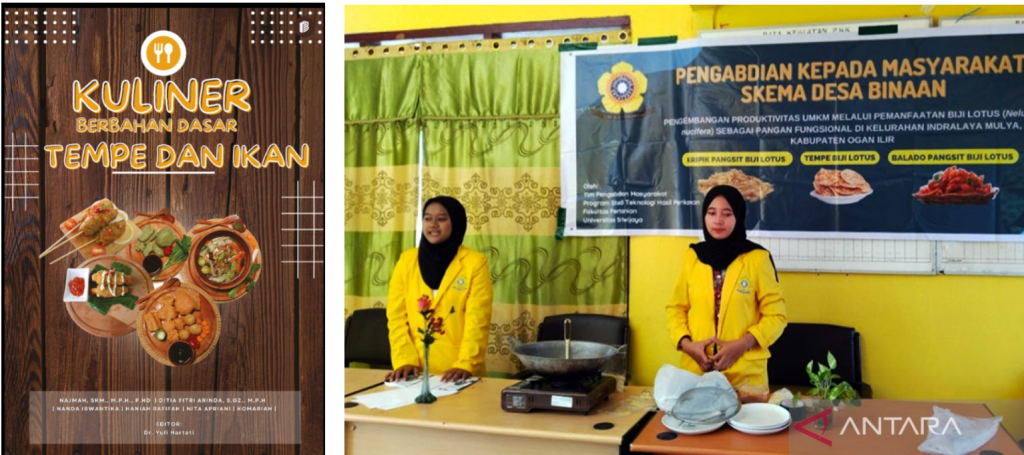
Tempeh has become a part of daily life at Sriwijaya University as a traditional food that is offered in various event menus, seminars, and is available in the student canteen and campus pantry as an option for those who adhere to a vegan lifestyle. UNSRI has also developed various alternatives to increase the value of tempeh by researching alternative substitutes for soybean raw materials with other raw materials that are affordable and still nutritious. For instance, lecturers and students from Faculty of Agricultural Technology who are teaching the production of tempeh from lotus seeds. Another instance, nutrition students and lecturers provides examples of creative menus from Tempe and the recipes was published in a book. Interestingly, Nutrition students not only share about Tempe’s benefit to University students, but also for children and community surrounding Sriwijaya University as well other vegetarian food, such as vegetarian spring rolls.
Links:
- https://www.antaranews.com/berita/3134637/dosen-mahasiswa-unsri-edukasi-masyarakat-olah-biji-lotus-jadi-tempe
- https://bintangpustaka.com/toko-buku/sosial-budaya/kuliner-berbahan-dasar-tempe-dan-ikan/
- https://www.instagram.com/nutripreneur_fkmunsri
- https://www.instagram.com/englishcamp_plaju/
SDG 2 – Indicator 2.3.4 – Healthy and affordable food choices
Healthy canteen, healthy campus
Sriwijaya University has initiated the Healthy Canteen, Healthy Campus program as an effort to provide healthy food choices in the canteen, which will ultimately promote the realization of a healthy campus. Through this program, campus dining halls offer meals and snacks that are lower in added sugars, unhealthy fats, and sodium, while rich in fruits, vegetables, whole grains, and lean proteins. In addition to providing healthier options, the program focuses on creating a culture of health across campus, benefiting students, staff, and faculty alike.
Some of the key components and benefits of the Healthy Canteen, Healthy Campus Program, an initiative of Sriwijaya University:
- Balanced, nutritional meals
The program focuses on providing well-rounded meals that contain a variety of nutrients. By incorporating whole foods such as fruits, vegetables, whole grains and lean proteins, the program helps students make healthier choices to support their physical health, mental clarity and overall well-being.
- Healthy eating education
Healthy campus programs also provide students with resources and information about nutrition, portion sizes, and the impact of healthy eating on academic performance and long-term health. Workshops, nutritional labels, and informative signage make it easy for students to make informed choices.
- Affordable, accessible options
Recognizing that many students are on tight budgets, the program ensures that healthy options are not only available, but also affordable and accessible to all. This approach helps remove financial barriers to healthy eating and increases food security on campus.
- Reduce the amount of processed foods and sugar-sweetened beverages
The program prioritizes the reduction of highly processed foods and sugary drinks that contribute to chronic health problems, replacing them with healthier alternatives such as fresh juices, infused water, and healthy snacks. By creating an environment where nutritious options are the default, the program subtly changes students’ eating habits over time.
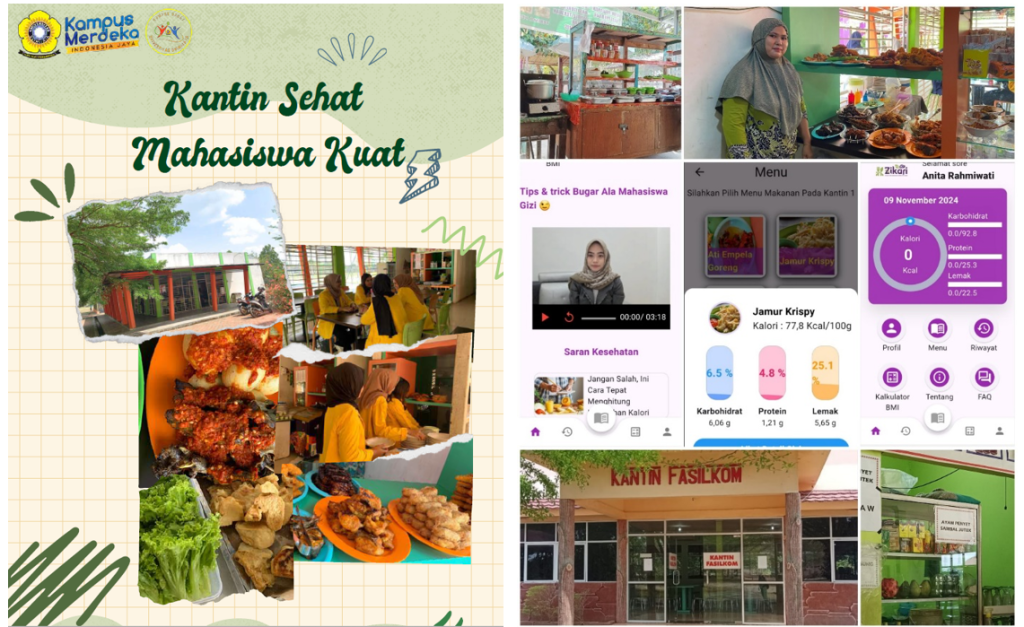
- Sustainability and Local Ingredients
Whenever possible, cafeterias incorporate locally sourced and sustainably produced ingredients. This not only supports the local economy, but also reduces the carbon footprint associated with transporting food, which aligns with campus sustainability goals.
- Creation of Healthy Space
Beyond food choices, the Healthy Canteen, Healthy Campus program fosters an environment where health is a campus-wide priority. Dining halls are being redesigned to be welcoming and calming spaces where students can take mindful breaks, socialize, and focus on self-care while enjoying nutritious meals.
- Promoting mental and physical health
Health and nutrition are closely linked to academic performance, mental clarity, and energy levels. By ensuring that healthy meals are readily available, the program plays an important role in helping students maintain physical health, manage stress, and focus on their studies.
- Dining options are inclusive
Healthy campus programs often include a variety of food options to accommodate students with different dietary preferences and needs, including vegetarian, vegan, gluten-free and allergy-sensitive options. This inclusivity fosters a sense of belonging and ensures that every student has access to meals that support their well-being.
Links:
- https://kemahasiswaan.unsri.ac.id/kampussehat/
- https://www.instagram.com/my.vitahydrate/
- https://www.instagram.com/nutripreneur_fkmunsri
- https://drive.google.com/file/d/1wUrnhYK8HcIHagEaAbUoHjC6JBW5MyR/view?usp=drivesdk
SDG 2 – Indicator 2.3.5– Staff hunger interventions
Free Lunch on Friday (Jumat Berkah) for academic staff
As part of its ongoing commitment to promote well-being and inclusivity, Universitas Sriwijaya has introduced the Free Lunch on Fridays (Jum’at Berkah) program for academic staff. Rooted in the values of community support and generosity, this program provides free, nutritious lunches for academic staff every Friday, contributing to SDG 2: Zero Hunger by addressing food security at the local level. Although SDG 2 traditionally focuses on eradicating hunger worldwide, this initiative brings its mission closer to home by ensuring that all Campus employees – regardless of their economic circumstances – are supported and included.
Through the Jum’at Berkah program, institutions are recognizing the critical role that academic staff play in maintaining a vibrant, productive campus environment and addressing the food insecurity that can affect some staff members. By providing free meals on a weekly basis, this initiative promotes nourishment, gratitude, and a sense of community across campus.
This program aims to support food security because academic staff, like students, may face financial challenges that impact their ability to secure regular, nutritious meals. This program ensures that all staff have at least one guaranteed, healthy meal per week, reducing financial strain and increasing food security within the campus community.
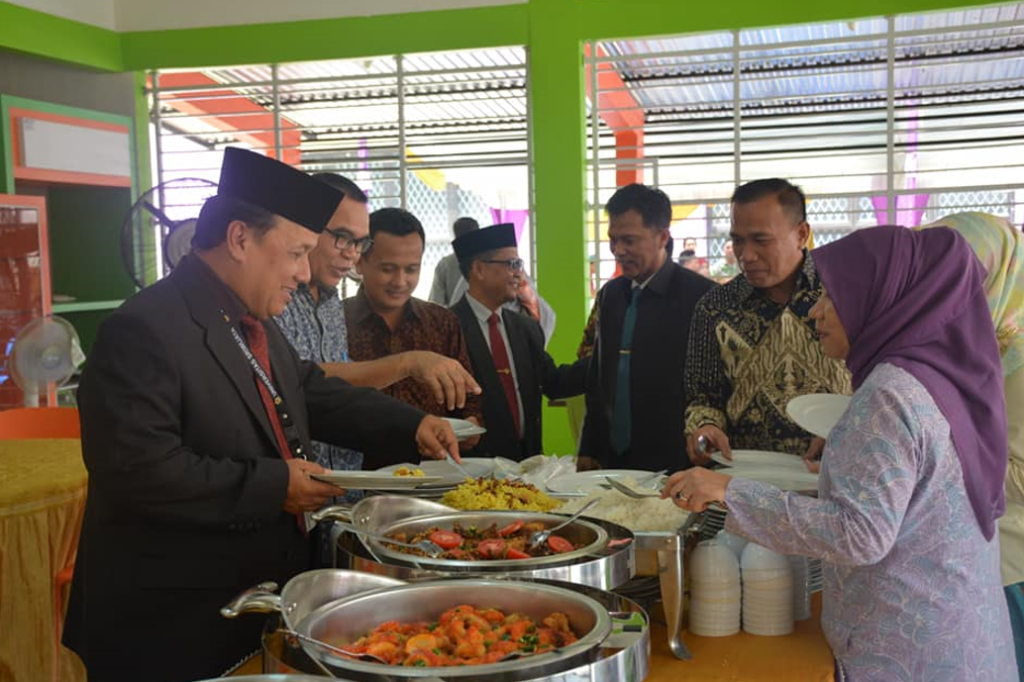
This program also aligns with SDG 2, which aims to end hunger and ensure access to safe, nutritious and sufficient food for all. The Jum’at Berkah program reflects this goal by ensuring that food security extends to all members of the academic community and serves as a meaningful reminder that the principles of SDG 2 are relevant in all communities, both locally and globally. It also creates generosity, as Jum’at Berkah embodies the values of kindness and giving back to the community. Through this weekly gesture, institutions instill a culture of generosity and caring, encouraging employees to look for ways to support one another and contribute to the well-being of the larger campus community.
